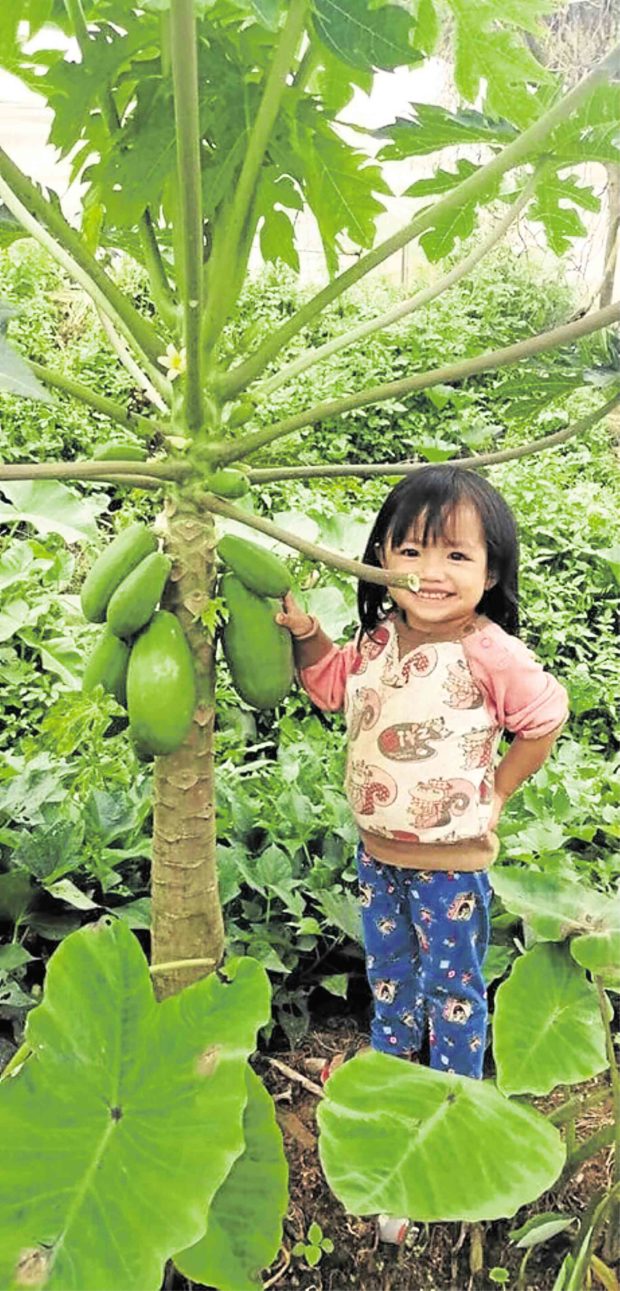Tourism growing in Benguet farm
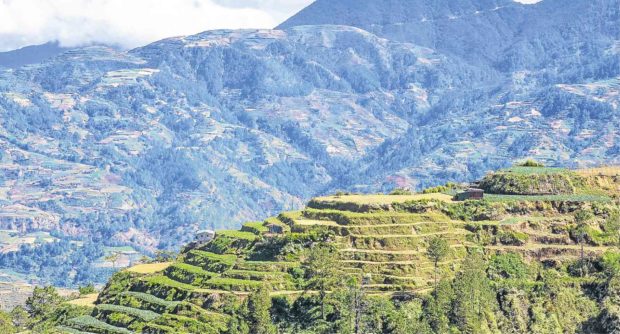
SALAD BOWL The rich agricultural lands of Benguet province supply vegetables to Metro Manila and other markets in Luzon. —KARLSTON LAPNITEN
TUBLAY, Benguet, Philippines — A 4.2-hectare farm in a remote village here is spinning off into a sustainable yet enjoyable enterprise.
Shayanlene’s Fruits and Vegetable Trading will soon welcome visitors as it starts to transform the farm at Sitio Damsite in Barangay Ba-ayan into a tourist spot.
“If there is strawberry picking, then we can also have vegetable picking,” says Arlene Cipriano-Emmon, farm manager.
Early this month, employees of two hotels in Baguio City were invited to a daylong tour of the place, hoping word would spread to help promote agritourism.
Flagship project
Article continues after this advertisement“We want to show them what our farm can offer and they agreed to help us promote our produce,” Emmon says.
Article continues after this advertisement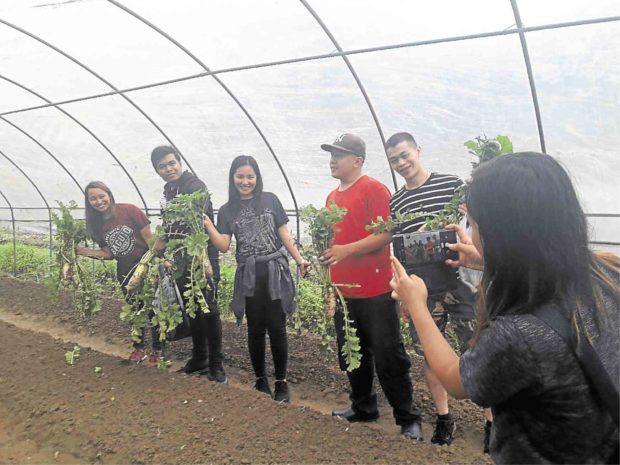
FARM ACTIVITY Visitors enjoy picking vegetables as they tour the farm operated by Shayanlene’s Fruits and Vegetable Trading in Tublay, Benguet. —KIMBERLIE QUITASOL
Farm tourism destinations have opened up across the country, drawing local and foreign tourists. These range from a 20-square-meter mushroom production venture to vegetable farms, including orchards and vineyards that allow visitors to pick fresh fruits for a fee.
Tourism Secretary Bernadette Romulo-Puyat has advocated farm tourism as a flagship project.
In 2017, Sen. Cynthia Villar, chair of the Senate agriculture and food committee, led the launching of the farm tourism initiative. Since then, she has been encouraging farmers to learn to develop agribusinesses by converting their farms into tourism destinations with restaurants and homestay facilities, or as agriculture training centers.
Gerry Beltran, a member of Baguio Association of Hotels and Inns (Bahai), says helping Emmon and her family promote their farm also benefits their hotel.
“We cannot survive without our suppliers so we at Bahai decided to work together and help each other,” says Beltran, who also manages the Albergo Hotel.
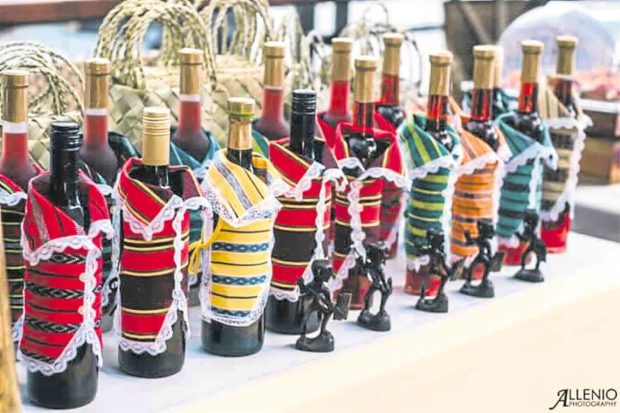
Bottles of fruit wine are available in several farm stalls and outlets in Benguet. —CONTRIBUTED PHOTO
The recent day tour allowed the visitors to see and experience firsthand various activities in the farm, 28 kilometers from Baguio City.
Sharing
“The ride got a bit rough and bumpy somewhere, and the rain poured when we were about to reach the farm, but it is good we experienced these because we will be able to share to our guests the thrill and the fun in the travel alone,” Beltran says.
He stresses that their advocacy in the tourism sector is about sharing.
“Everybody — from suppliers to hotels and other stakeholders — should benefit from tourism,” Beltran says.
Aside from the Tublay farm, Shayanlene’s also operates a 2-ha farm in Buguias town, also in Benguet, and a 2-ha farm in Kayapa town, Nueva Vizcaya province. Cabbages, carrots, potatoes and beans are grown in both farms.
Unstable prices
Instead of just dropping off all their produce at the vegetable trading post in La Trinidad, the Benguet capital, they opted to supply vegetables to hotels and restaurants in Baguio, Emmon says.
“This way we do not worry about the unstable prices of vegetables at the trading post,” she says.
For decades now, Benguet farmers have gone bankrupt due to the unstable buying prices of vegetables.
Farmers risk their own capital, which is usually borrowed from a lending institution, every cropping season.
“They [farmers] got only one chance. If during harvest the prices are too low then they do not have any other choice but to gamble again for the next harvest,” Emmon says.
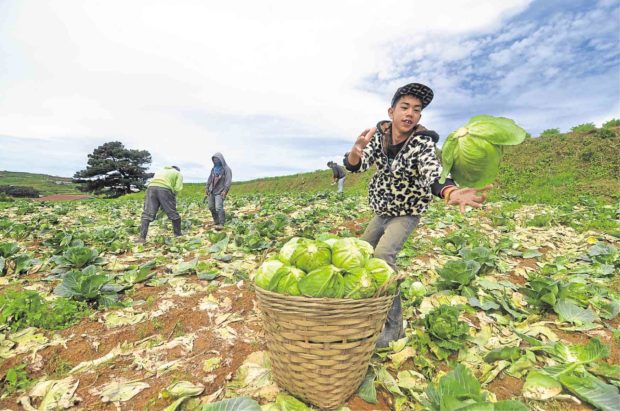
HARVEST In Benguet, farm visits will give guests a chance to witness how vegetables are planted, grown and harvested. —KARLSTON LAPNITEN
According to her, supplying the vegetable needs of hotels and restaurants has spared them from getting out of business.
On a bad day, the farm gets an order for at least 16 kilograms of assorted vegetables. But during peak season when tourists flock to Baguio, the order reaches as much as 100 kg.
Apart from working on closing deals with more hotels and restaurants, the farm plans to supply vegetables to hospitals.
“Our farms are not that wide so we program our planting and harvest based on the orders that we get,” Emmon says.
At the Albergo shop alone, Emmon says they sell up to 100 kg of assorted vegetables weekly. These include lettuce (romaine, iceberg and green ice), bok choy, cherry tomatoes, Japanese cucumber, spinach, cabbages and carrots.
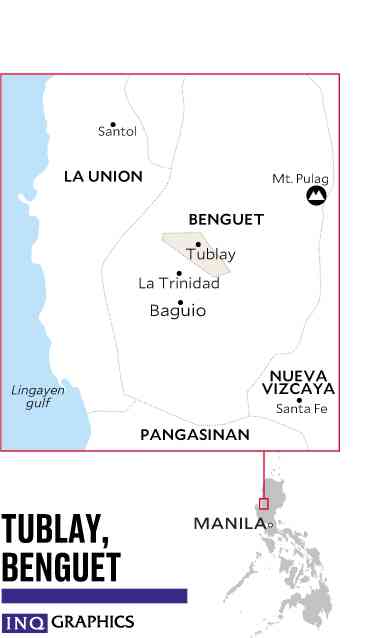
Family enterprise
The profits are enough to sustain the farm needs and the salaries of personnel, who are mostly family members and relatives.
Acita Mag-ili, Emmon’s aunt, is in charge of ensuring that the farms produce quality vegetables. She says a way has been devised to ensure steady supply for regular customers.
With a limited farm area, plots are assigned for every vegetable and fruit, and these are replanted after each harvest.
According to Mag-ili, they also maintain areas for seedling propagation to make sure seedlings are available every time they need to transplant.
“Every day, we have orders to meet and by the end of the month we are assured of enough earnings for all of us to share, unlike in the conventional farming where you plant and wait while praying for a good price when harvest comes,” she says.
